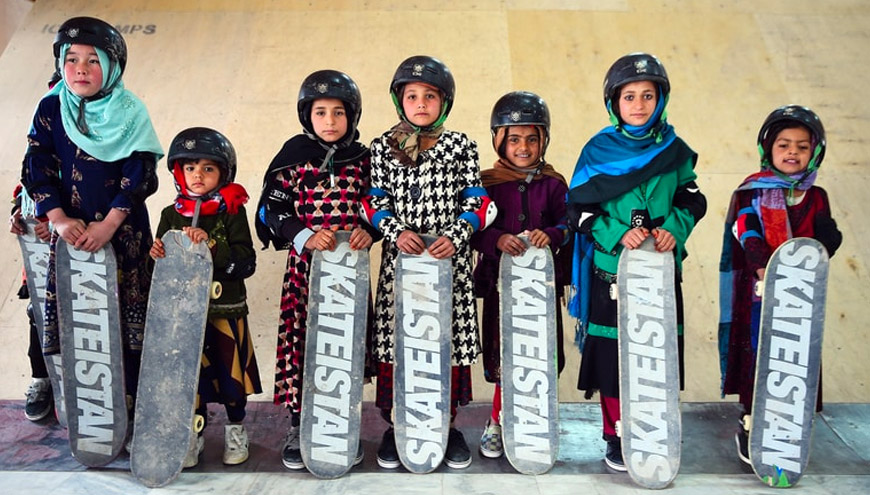Promoters:
Oliver Percovich.
Country:
Afghanistan
A non-profit organisation that uses skateboarding to engage children and youth from different backgrounds in safe educational spaces in which they can break down social barriers and develop leadership skills.
What solution does the innovation propose?
Skateistan provides consistent, fun, quality skateboard-based education programmes and safe places where youth can participate in different activities to develop respect, cooperation and equality. Participants obtain information and education opportunities while developing life skills that equip them for the future, make them resilient and able to enjoy a better quality of life. Social support networks are built up around them, leading to their full participation in civil society.
Recognitions
Champion of Learning through Play Award, Ashoka and Lego Foundation (2014). Unicef Sport for Education Award, Beyond Sport (2013). Golden Dove of Peace, United Nations (2009).
Impact evidence
Outputs
- In 2016, 1,870 children participated in Skateistan globally.
Outcomes
- In 2015, 93% of the students registered in the Back-To-School programme completed second grade exams or higher.
How does it work?
Skateistan’s programmes include:
- ‘Outreach sessions’. Educators and Youth Leaders head out to communities with skateboards and sports equipment to engage with local children, providing an hour of recreational activity. Through these sessions, many students go on to register in the ‘Skate and Create’ or ‘Back-to-School’ programmes.
- ‘Back-to-School’. In Afghanistan,it is an accelerated learning programme for out-of-school children, who go to the Skate School five days a week to attend classes covering the national public curriculum. Upon programme completion, the organisation enrols students into a public school. In South Africa and Cambodia, the programme takes place after school and provides students with homework help, career guidance and education planning.
- ‘Skate and Create’. A programme that combines an hour of skateboarding instruction with an hour of educational arts. Students work in topics such as human rights through creative arts (painting, sculpture, photography and others).
- ‘Youth Leadership’. The most outstanding participants become Youth Leaders. Their tasks include assisting educators in classes, building their skill sets and planning local events. The programme develops a sense of ownership and creates role models for the other students and wider community.
Geographical scope
Where was initially developed
Afghanistan.
Where has been implemented so far
Cambodia and South Africa.
Last updated:
June 2017

Estándares Upsocial
Sustainable Development Goals Read more
Sustainable Development Goals
Related collections
Related information


